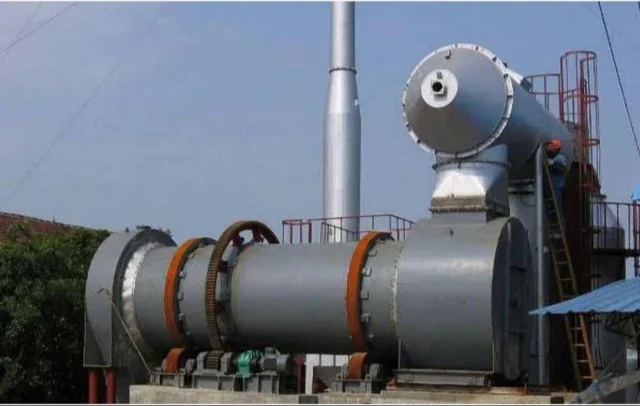Managing poultry waste efficiently and sustainably is a critical challenge in the modern livestock and poultry industry. With the increase in poultry farming and production, the generation of organic waste, including feathers, droppings, carcasses, and offal, poses serious environmental and health hazards. To address these issues, advanced rotary incinerators offer a practical and eco-friendly solution. These systems are specially designed to handle various types of poultry waste in a controlled, high-temperature environment, ensuring complete combustion and minimal emissions.
Key Features and Benefits of Rotary Incinerators for Poultry Waste:
- Efficient Waste Reduction: Rotary incinerator are highly effective in reducing the volume and mass of poultry waste. They can achieve up to 90–95% waste volume reduction, turning harmful waste into sterile ash, which is easier to dispose of or repurpose.
- High-Temperature Operation: These incinerators operate at extremely high temperatures, often exceeding 850°C, which ensures destruction of pathogens, bacteria, and viruses present in poultry waste. This makes the environment safer and reduces the risk of disease spread.
- Rotary Mechanism for Uniform Burning: The rotating drum mechanism allows continuous movement and mixing of waste materials, ensuring even exposure to heat. This leads to more efficient combustion and prevents the formation of cold spots, which can hinder complete waste processing.
- Pollution Control Systems: Advanced rotary incinerators come equipped with air pollution control systems such as scrubbers, filters, and chimneys. These components help minimise the emission of harmful gases and particles, keeping the system compliant with environmental regulations.
- Energy Efficiency: Modern designs focus on energy efficiency by recovering heat from the combustion process. This heat can be reused for pre-heating or in other thermal applications within the poultry facility, lowering fuel consumption and operational costs.
- Versatility and Capacity: Thanks to their modular designs and varied capacities, they are suitable for small-scale farms as well as large commercial operations.
- Safe and Hygienic Operation: The incineration of poultry waste eliminates foul odours, insect breeding, and other hygienic issues that arise from traditional disposal methods like landfilling or composting. This promotes a cleaner, safer farm environment.
- Automation and Monitoring: Many poultry incinerator systems offer automation features such as temperature control, feeding systems, and continuous monitoring, which reduce labour involvement and ensure consistent, safe operation.
- Compliance with Biosecurity Standards: The rotary incinerator supports strict biosecurity practices by quickly neutralising biological waste, reducing the risk of contamination to the flock and the surrounding environment.
Conclusion:
Advanced rotary incinerators provide an effective, eco-conscious solution for managing poultry waste. These systems ensure efficient combustion, odour control, and pathogen elimination. With enhanced safety, automation, and environmental compliance, rotary poultry incinerator systems are indispensable tools for modern poultry farms aiming for sustainability and operational excellence.



